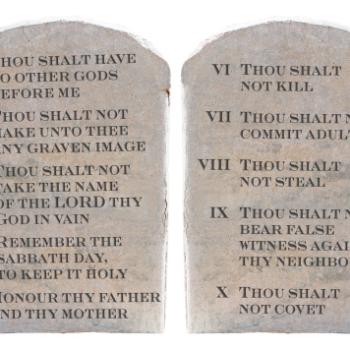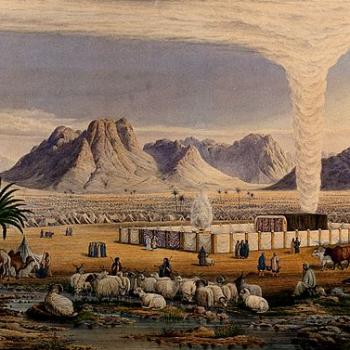Simon Critchley has published a Christmas sermon in the New York Times, a retelling of Dostoevsky's story from The Brothers Karamazov of the Grand Inquisitor and his encounter with Jesus, told so as to make pointed the question of whether Christian faith really is superior to the demonic happiness that the Inquisitor works to make possible. "Is the Grand Inquisitor's lie not a noble one?" Critchley asks. And he answers, "I don't know the answer to this question. Which should we choose: diabolical happiness or unendurable freedom?"
As always Critchley's piece is carefully thought out and superbly written. Nevertheless, its unspoken premise is profoundly mistaken. Like Ivan, he assumes that the options of Dostoevsky's story are the only two. But we cannot forget that the Grand Inquisitor tells both stories, and that the love he has found for humankind is a love that includes the auto de fe, which he has recently attended and to which he will add Jesus. We have to wonder about the honesty of the Inquisitor, with himself as well as with Jesus.
In the story the Inquisitor pits two grand narratives against one another. In one, heroic faith, forged in doubt and self-denial and attainable by only a very few, grants a freedom that few can endure. In that narrative all those who cannot attain such heroism are condemned.
According to the other narrative, some like the Inquisitor know that few human beings can stand the freedom of faith. To create a universal, harmonious church-state they have sacrificed themselves to offer people happiness rather than freedom. In fact, they have freed people from the agony of freedom by offering them fulfillment of desire.
The Inquisitor knows that the happiness he offers will, as Critchley says, amount to moral and spiritual suicide for the rich and murderous envy for the poor. He certainly knows that it has meant the ironically named auto de fe. He knows that the happiness he offers is demonic.
According to the Grand Inquisitor then, we have two choices, the freedom of a few and the condemnation of most to a freedom that is impossible to bear, or the deaths of relatively few with a promise to many of happiness as the temporary fulfillment of desire. On one side, a few saved, with most condemned to the agony of freedom. On the other side, a few condemned to death and most living in the demonic illusion of happiness.
Neither option is all that appealing. No wonder that Critchley cannot choose between them.
But like Ivan, Critchley doesn't give enough significance to Jesus' and Alyosha's kisses. The second of these isn't a matter of plagiarism. It is Kierkegaardian repetition. It isn't mere imitation, which would make it plagiarism. Instead it is the genuine repetition of the same act. It is Ivan's repetition of Jesus' love and hope.
Critchley recognizes that faith is hope for grace, but when he reads the Inquisitor's story he is seduced into letting that drop out of his understanding of Christian freedom. If troth, fidelity, makes the Christian free, then freedom is not radical freedom of conscience. Nor is it radical freedom of action. The choice of Christian freedom is not a heroic act, for that freedom comes through grace.
Christian freedom would be unendurable if it were the pure freedom to make or remake ourselves. But it is not that at all. It is, instead, the freedom to be remade. Christian freedom is not freedom to do anything. It is freedom from ourselves, from who we have been and are. Christian freedom is the freedom of atonement.
Critchley recognizes that the freedom Jesus offers isn't libertarian freedom, but a freedom that comes from fidelity to the person Jesus, the freedom from the burden of sin, a burden that we cannot avoid. But he seems not to remember that as he thinks through the Inquisitor's narratives, and he shifts to freedom as freedom of conscience or freedom of choice or something like them, a matter of will and heroism in any case.
If that were what Christian freedom amounted to, then the perfection commanded Christians would be, at best, a pipe dream and, at worst, the agony envisioned by the Inquisitor.
But when Jesus says "Be ye therefore perfect (teleios)" (Mt. 5:48), what he says can only be understood in the context of what he has just been teaching, the things that lead up to this commandment: blessed are those who are impoverished in spirit, and those who mourn, those who are meek, those who hunger for righteousness, who are merciful, who are pure in heart, who seek peace, who are persecuted for being upright. Jesus promises that those who are weak and who suffer can be blessed (makarios), can be happy. The promise is not made to those with heroic strength of will or character, but to those without it. And the promise is happiness rather than free will.





